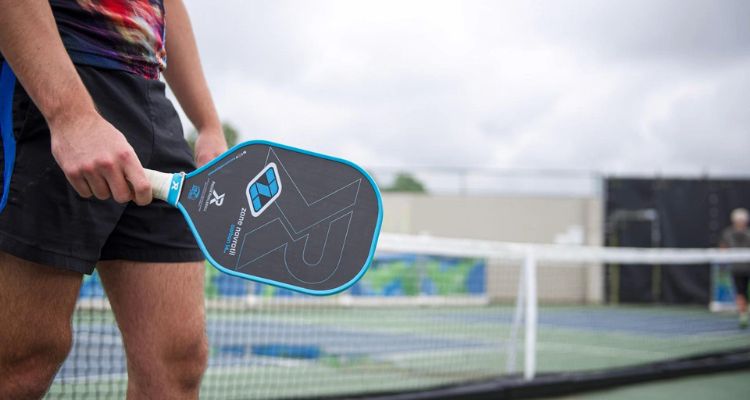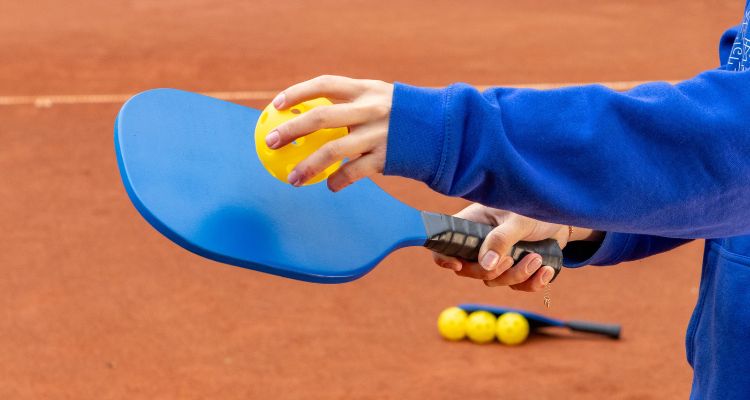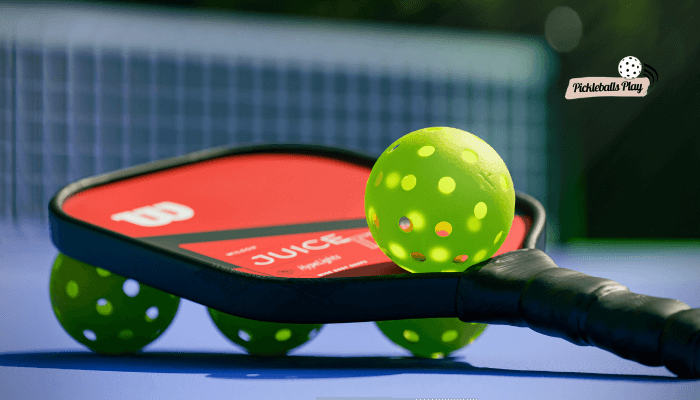Pickleball is an incredibly fun and exciting sport that has been gaining popularity over the years. However, like any physical activity, it comes with its risks and potential injuries. One common injury among athletes, including pickleball players, is a torn meniscus. This can be a painful condition that affects the knee joint and can have a significant impact on your ability to play the game you love.
If you’re an avid pickleball player dealing with a torn meniscus or wondering if it’s safe to continue playing, you’ve come to the right place! In this blog post, we’ll explore everything you need to know about playing pickleball with a torn meniscus. From how it can happen to managing your condition while still enjoying the game, we’ve got you covered. So, let’s dive in!

Can You Play Pickleball with a Torn Meniscus?
The short answer is yes, you can play pickleball with a torn meniscus, but it is not advisable. Playing with a torn meniscus can strain the knee joint and potentially cause more damage or result in further injuries. Medical professionals typically recommend that players avoid pickleball or any sport until after surgery or until the tear has been repaired, which may require running or jumping.
However, some players may be able to continue playing at low levels with their doctor’s permission. In these cases, it is crucial to take precautions, such as avoiding sudden movements or jumps during gameplay that could hurt your knee joint. Opting for softer turf rather than hard courts can also help reduce the impact on your joints. Additionally, wearing knee braces or pads can provide extra support and prevent excess pressure on your knees in case of falls.
It’s important to note that playing pickleball with a torn meniscus should only be considered if approved by medical professionals. Each individual’s situation is unique, and preventive measures, such as wearing protective gear and playing on soft surfaces, can help reduce the risk of reinjury while still allowing you to enjoy the game.
How Can Pickleball Lead to a Torn Meniscus?
Pickleball’s fast-paced nature can potentially lead to injuries like a torn meniscus if players aren’t careful. A meniscus tear is a type of injury that affects the cartilage in the knee joint. It’s often caused by sudden twisting or rotating of the knee during sports activities, such as pickleball.
Typical symptoms of a meniscus tear include pain, swelling, difficulty moving the knee joint, and instability in the affected area. To prevent such injuries, players should always warm up properly before engaging in physical activity. This helps reduce the risk of a torn meniscus while playing pickleball. Additionally, using proper techniques when hitting shots and wearing appropriate footwear with proper shock absorption can help minimize knee stress during gameplay.

The Risks of Playing with a Torn Meniscus
Playing pickleball with a torn meniscus can pose risks and potential complications for your knee health. A torn meniscus is a common knee injury that affects the cartilage cushion between the thigh bone and the shin bone. Some of the risks associated with playing pickleball with a torn meniscus include:
- Tear Aggravation: The sudden stops, changes in direction, pivoting, and jumping involved in pickleball can stress the knee joint and meniscus, potentially worsening the tear or causing new tears. This can lead to more pain, swelling, and instability in the knee.
- Increased Danger of Falling: A torn meniscus can impair the stability and function of the knee, making it more challenging to balance and move smoothly. This increases the risk of falling or tripping while playing pickleball, potentially resulting in further injuries to the knee or other parts of the body.
- Delayed Healing: Playing pickleball with a torn meniscus can impede the healing process and prolong recovery. The repeated stress on the knee can prevent the cartilage from repairing itself or healing correctly, potentially leading to chronic pain, inflammation, and knee joint degeneration.
Considering these risks and potential complications, it is important to know when to avoid playing pickleball with a torn meniscus.
When to Avoid Playing Pickleball with a Torn Meniscus
Pickleball can be risky for individuals with a torn meniscus. It’s important to be cautious and consider the following situations when deciding whether to play or not:
- Immediately After the Tear: If you suspect you have a torn meniscus, it’s best to stop playing pickleball immediately and seek medical attention. Continuing to play with a torn meniscus can worsen the injury and cause further damage to the cartilage and knee joint. Consult with your doctor for a proper diagnosis and treatment plan, which may include rest, ice, compression, elevation, medication, braces, or surgery.
- After Surgery: If you have undergone surgery to repair your torn meniscus, it’s important to avoid playing pickleball until your doctor has cleared you. The recovery time after meniscus surgery can vary depending on the type of surgery, the extent of the tear, and your individual healing process. Typically, it can take several weeks or longer to fully recover. Follow your doctor’s instructions and complete a rehabilitation program that includes exercises to strengthen and stretch your knee muscles while gradually resuming physical activities.
Remember, your knee must be fully healed and stable before playing pickleball with a torn meniscus. It’s crucial to prioritize your health and well-being to prevent further complications and enjoy the sport safely.
How to Manage a Torn Meniscus While Playing Pickleball
If you have a torn meniscus and want to continue playing pickleball, there are steps you can take to manage your injury and minimize further complications. Consider the following tips:

- Warm-up Properly: Prior to playing pickleball, ensure you warm up your muscles and joints with light cardio and dynamic stretches. This helps improve blood flow, flexibility, and mobility while reducing the risk of injury. Avoid playing in cold or damp environments that can stiffen your knee.
- Modify Gameplay: Avoid movements that can aggravate your torn meniscus, such as sudden stops, changes in direction, pivoting, and jumping. Limit the intensity and duration of your gameplay and choose a level of play that matches your ability and comfort. Consider playing doubles instead of singles to reduce running and court coverage.
- Use Proper Equipment: Wear comfortable and supportive shoes that fit well and offer good cushioning and traction. Use a lightweight paddle that suits your grip size and style. Consider wearing a knee brace or sleeve to compress and stabilize your knee joint.
- Listen to Your Body: Pay attention to any signs or symptoms of pain or discomfort in your knee while playing pickleball. If you experience pain or swelling, stop playing immediately and apply ice to the affected area. Rest your knee until the pain subsides and take anti-inflammatory medications if necessary. If the pain persists or worsens, consult your doctor.
- Follow a Rehabilitation Program: Implement a rehabilitation program that includes exercises to strengthen and stretch your knee muscles while improving your range of motion. Consult your doctor or a physical therapist for a personalized program that suits your condition and goals. Perform the exercises regularly and correctly for optimal results.
- Take Breaks: It’s important to take frequent breaks from playing pickleball to rest and allow your knee to recover. Avoid playing on consecutive days or multiple times daily. Give your knee enough time to heal between sessions and avoid activities that may stress your knee.
- Communicate With Your Partner: If you are playing doubles, communicate with your partner about your injury and limitations. Let them know what movements you can or cannot do and which areas of the court you can or cannot cover. Ask for their support or assistance when needed.
By following these tips, you can manage your torn meniscus while still enjoying pickleball. Remember to consult your doctor before playing with a torn meniscus and follow their advice on treatment and recovery. Prioritizing your health and taking preventive measures will allow you to safely and comfortably enjoy the sport you love.
Meniscus Injury and Pickleball: Factors to Consider
For individuals with a meniscus injury, it’s essential to carefully consider several factors before deciding whether to play pickleball or not. These factors include:
- Tear Severity: The severity of your meniscus tear can impact your ability and safety when playing pickleball. Different types and grades of meniscus tears range from mild to severe, and treatment options will vary accordingly. Receive a proper diagnosis and treatment plan from your doctor and follow their guidance on resuming physical activity.
- Pain and Discomfort: Meniscus injuries often come with pain and discomfort that can affect your performance and enjoyment of pickleball. Pain can limit your range of motion, strength, and knee stability, making it difficult to move and play effectively. Discomfort can also distract you from the game and reduce your concentration and confidence. Listen to your body, and if you experience pain or discomfort, stop playing and use pain relief methods as needed.
- The Risk of Further Damage: Playing pickleball with a meniscus injury increases the risk of further damage to your knee joint and cartilage. The movements involved in pickleball, such as sudden stops, changes in direction, pivoting, and jumping, can stress the knee joint and exacerbate the tear or cause new tears. To minimize the risk, avoid playing with a fresh tear or after surgery until your knee is fully healed and stable. Modify your gameplay and use proper equipment to reduce stress on your knee.

Prioritize your health and well-being when considering playing pickleball with a meniscus injury. Consult your doctor for an accurate diagnosis and treatment plan that suits your condition. By following their advice and taking precautions, you can make an informed decision and safely enjoy the sport.
Frequently Asked Questions (FAQs)
What is a torn meniscus?
A torn meniscus is a tear in the rubbery cartilage that cushions the knee joint. It often occurs during sudden twisting, turning, or stopping activities.
Can a torn meniscus get worse while playing pickleball?
Yes, a torn meniscus can worsen while playing pickleball if not treated correctly. Severe tears may lead to more serious damage and may even require surgery.
How long does it take for a torn meniscus to heal?
The healing time for a torn meniscus typically ranges from 6 to 8 weeks. However, recovery time can vary depending on the severity of the tear and individual factors.
Can a torn meniscus heal on its own?
A torn meniscus can only heal on its own if the tear is small and located in a part of the meniscus with adequate blood supply. Most tears, however, require medical treatment, such as rest, medication, physical therapy, or surgery.
Remember, it’s crucial to prioritize your health and consult your doctor for an accurate diagnosis and treatment plan for your torn meniscus. Only play pickleball after your knee has fully healed and you have received clearance from your doctor. By doing so, you can prevent further complications and continue enjoying the sport safely. Happy pickleballing!




